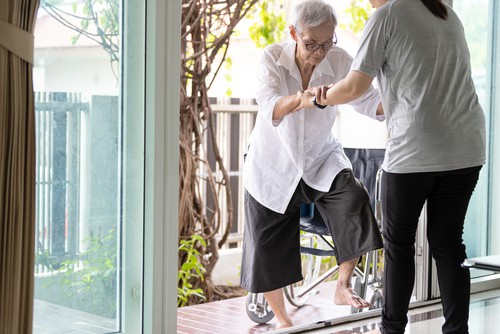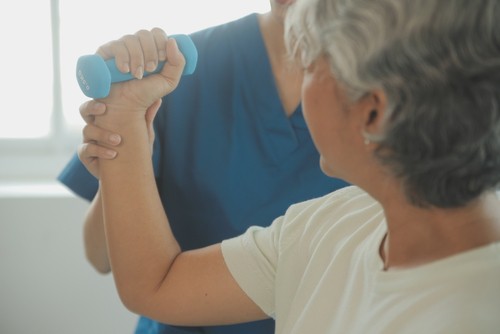
Part-Time Elderly Care Services
Part-Time Elderly Care Services – We all have to face it someday.
Either we will get to the point where we will not be able to care for ourselves very well, or we will need to take in an elderly parent or another relative.
Often the parent will want to stay in their home and not live with a child. In either case, part-time caregivers may be just what the person needs.
Most women in Singapore are in the workforce, which complicates the possibility of having an elderly parent move in.
Mothers may be fortunate enough to hire a helper to aid with the housework, but this is only sometimes the case.
In addition, someone hired to do housework is only sometimes qualified or willing also to take on the care of an older adult in the household, especially if that person has a mental problem caused by aging.
According to a 2021 report by Channel NewsAsia, the percentage of residents age 65 or older in Singapore was 17.6 percent and was projected to rise to almost 25 percent by the year 2030.
The report also stated that nearly 70,000 senior citizens had trouble caring for themselves then.
There are alternatives to caring for an aging parent at home. However, in Singapore, there haven’t been many options for help other than in-home care or sending the senior to a nursing home.
While newer options are becoming available, so are more options for in-home use.
In-home help doesn’t need to be full-time, live-in help. In most instances, all that’s needed is someone to monitor the older adult and help them with various daily living tasks.
Some cooking and light housekeeping is also possible. Read on – Part-Time Elderly Care Services:
Types of part-time elderly care available

Table of Contents
Overnight Care
One of the options is overnight care. Many times with an elderly parent who needs more attention, this is necessary for the couple to get enough sleep.
Even a parent staying home to care for minor children needs good rest. This problem is especially true for the elderly with stroke, dementia, or Alzheimer’s.
These people often wake during the night not knowing where they are; some are prone to just getting up and wandering off.
An overnight caregiver can keep the couple from listening to every little sound during the night. That’s not an excellent way to get restful sleep.
There are two versions of overnight care. In one, the caregiver stays awake all night.
This is necessary for someone with dementia and the like or who often needs care because of a stroke or similar condition.
With the other version, the caregiver stays near the older adult but doesn’t need to stay awake all night.
The caregiver is right at hand when the older adult needs to get up to go to the restroom and needs help to prevent falls, for instance.
Temporary Care
Some older adults need extra care after getting home after surgery or a long illness. This type of care is usually for a specified period.
It lasts until the older adult is healthy enough to resume a regular life. The person’s physician usually determines how long this care will be needed.
Care for Specific Purposes

These in-home caregivers don’t spend all day with the older adult. They stop in daily at a regular time for specific types of help.
For instance, a caregiver might arrive in the morning to help the person dress and cook breakfast. They make sure that medications are taken on time.
They can also assist with specialized needs such as incontinence and stress management.
The caregiver may also tidy up a bit and spend some time visiting. If the person’s family takes care of the morning, a caregiver may arrive in the early evening to prepare a meal.
People who work long shifts may find this type of service perfect.
Some caregivers can also provide transportation to medical appointments. Others may provide physical, speech, or cognitive therapies.
Meals on Wheels
This service provides lunch and dinner meal deliveries every day, including holidays.
This is an excellent service for older people who stay in their homes alone. Many single elderly tend to neglect to prepare proper meals for themselves, even if they are physically able.
This service also provides some social interaction to prevent loneliness. Special diets, such as vegetarian or soft foods only, are available.
Those elderly with special needs are also catered to. Those with vision or hearing loss, physical or mental disabilities, or autism are usually served.
All that is needed to apply is a referral from a hospital, clinic, or physician familiar with the person. The cost may be subsidized depending on income.
Day Care Centres

These are much like child daycare centers for the elderly. They provide much more than a meal and a few puzzles.
They feature different programs designed to promote health and well-being.
Opportunities for socializing are essential to prevent loneliness and depression.
Dementia Day Care Centres
Some centers specialize in those seniors with dementia. They offer cognitive stimulation and other activities to keep the mind active.
Their staff is specially trained to see to the needs of these seniors.
Day Rehabilitation Centres
These provide both physiotherapy and occupational therapy. They help seniors regain and maintain mobility and strength.
They are used frequently after surgery and help keep seniors from losing physical abilities.
Many feature licensed therapists and various equipment to support these abilities, keeping the senior more independent.
Senior Activity Centres
These offer activities and programs designed to keep seniors physically and mentally active. They also offer socialization with others.
Many also have health maintenance programs and screen for conditions such as dementia.
Centers run by The Agency for Integrated Care are free; privately run centers have a cost, but subsidies are available.
Part-Time Elderly Care Services – Conclusion

If you are looking after an elderly parent in your home or theirs, it would be good to look into these services.
You may find more types than you knew existed. Seek advice from the person’s physician.
Researching available resources ahead of time would take away uncertainty later on. You’ll be doing the senior a favor and your family as well.




